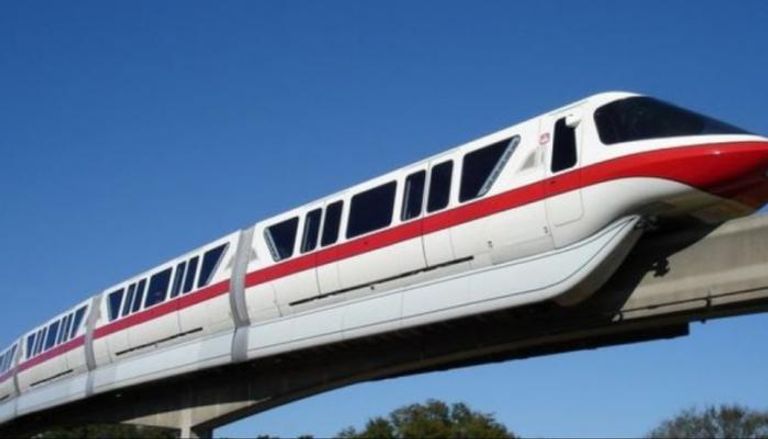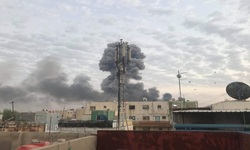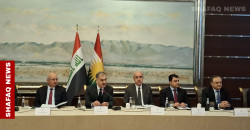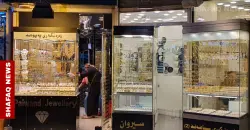Baghdad's maglev: a strategic project or an expensive joke?

Shafaq News / Residents of the Iraqi capital, Baghdad, home to nine million people, have eagerly awaited the maglev project after its designs were placed by a French company. Yet, the project is now more of a fantasy because years have passed without implementation.
Maglev – derived from magnetic levitation – is a system of train transportation that uses two sets of electromagnets: one set to repel and push the train up off the track, and another set to move the elevated train ahead, taking advantage of the lack of friction.
Since signing the contract with the Alstom corporation, which produced its designs in 2013, the project has been stuck in government departments due to some administrative, technical, and legal overlaps and issues until 2020, when it was raised again.
After the project's responsibility was transferred from Baghdad's Provincial Council to the Ministry of Transport, a committee was established to analyze the matter and give recommendations.
Baghdad and Alstom agreed to a contract in 2013 for the first phase of the maglev project's design development. The project included the construction of 14 stations beginning in the Sha'ab area through al-Mustansiriya, al-Ataifiya, Al-Muthanna Airport, and concluding in the Alawi area, which is the project's final station, over a distance of 30 kilometers between Rusafa and Karkh.
It was a controversial project, as some experts considered it a civilized and developmental phenomenon for a country that needs such projects to address Baghdad's congestion crisis. Others, on the other hand, considered it a "failed" project for a country full of problems, including the dilapidated infrastructure.
At the 2018 conference in Kuwait for Iraq's reconstruction, Iraq pitched the idea to foreign investors, however, the project did not pique their interest.
According to official government data, the project's estimated cost is $ 1.5 billion with a completion period of 5 years, and it aims to contribute to easing the traffic jams crisis and improve the service reality in Baghdad.
For his part, economist Mohammed al-Hasani said that "a project of this size will cost the government enormous sums of money that might exceed seven billion dollars with its future expansions, which may reach more than 50 kilometers."
He added that "this project needs solid economic and technical feasibility studies from an independent specialized advisory body preceded by studies of a modern comprehensive transport plan for the city of Baghdad to ensure its integration with other transport projects, whether public or private."
Al-Hasani continued, "The tracks proposed by Alstom company are located away from the congested center of the capital that is supposed to be served by the maglev. Their locations were chosen for executive considerations, including the availability of sufficient capacity in the streets through which the project passes to create the poles carrying the tracks, and not for considerations of breaking congestion."
The financial adviser to Prime Minister Mudhhir Mohamed Saleh said that "the designs for the maglev exist, and they represent sections between one region and another and are interconnected," noting to Shafaq News Agency, "the implementation plan will be easy and high-tech."
"The spread of thousands of cars in the streets has disrupted transportation. This is why all countries have public transport to solve the issue."
He pointed out that, "Iraq used to employ public transportation via passenger buses, but it eventually disappeared and was replaced by private transportation", pointing out, "the maglev is an important and vital solution for Baghdad to address the current transportation chaos."
Furthermore, the official spokesman for the Ministry of Planning, Abdul Zahra al-Hindawi, said that the maglev project is one of the strategic projects that aim to achieve development in Baghdad. It will also provide countless job opportunities. He added that the designs for this project have been completed, and now funds will be allocated for the implementation process in the general budget for 2023."
Mohammed Hamza, a resident of Baghdad, said that "the capital lacks infrastructure, so the current time is not in favor of the Maglev project. Most of our streets are ruined, in addition to the sewage systems, which can no longer accommodate the population increase."
"Countries implement such projects in conjunction with maintaining a strong infrastructure", he said, describing the project as the "joke of the season".
Mohammed Hamada, another capital resident, described the project as "the joke of Baghdad", pointing out that "people now mention it as a joke because talks about it have been repeatedly raised without implementation."
Moreover, Ahmed Hussein, a journalist who lives in Baghdad, thinks that "The maglev will exacerbate the current unemployment issue by disrupting the livelihoods of taxi and minivan drivers in the regions it will pass through. Contrary to what successive governments have advocated, it will not create 10,000 job opportunities because the number of job possibilities it can offer is limited to 50 in Best."
"Also, the project will not contribute to breaking traffic jams because it does not pass through already congested areas, but rather areas with wide streets and side tracks."
Hussein added that "the project's initial cost is nearly the highest cost for such a project in the world," noting that "there is a fundamental problem in the design of the project, as some areas through which its infrastructure passes are dilapidated, and consequently there may be landslides that hinder the progress of the project and lead to problems in the water and sewage networks."
It is noteworthy that during a cabinet meeting held last January, the current government, headed by Mohammed Shia al-Sudani, instructed the allocation of funds for implementing the maglev project within the 2023 budget.
Additionally, Transport Minister Razzaq Muhaibis al-Saadawi said that the maglev project was included in the ministry's budget for the year 2023, explaining that it includes 14 stations, with a length of 31 kilometers.
Al-Saadawi called on international companies to invest in the project, noting that it will feature fair competition away from corruption.




